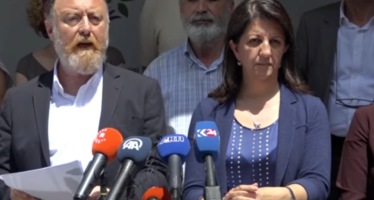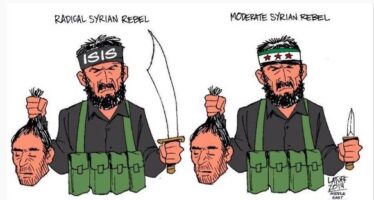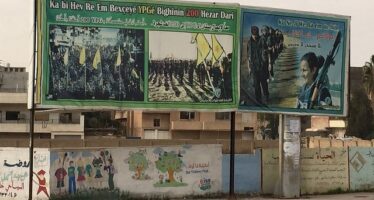Demirtas: building trust means recognizing all parties as equals
![]()

Speaking at the 7th International Conference at the European Union on EU, Turkey and the Kurdish issue, BDP (Peace and Democracy Party) Co-Chair Selahattin Demirtas says that the main issue now is “building trust among the parties involved in the question”. Demirtas underlined that “it is clear that there is a huge problem of trust, both the PKK and the Turkish government don’t trust each other. We, as BDP attach a lot of importance to establish trust among parties. Because these are two equal powers, because one cannot succeed over the other.”
Demirtas underlined that how “it is also been stated by PKK Murat Karayilan and Kurdish leader Abdullah Ocalan a peace process is more difficult than a violence process. If you want to have peace it’s much more delicate because we need to bring together many more qualities.
As politicians we asked for peaceful qualities, patience, flexibility, respect intelligence and this might bring about trust.”
Insisting on the question of trust, Demirtas says that “both parties should be sure that the other party is not playing a trick behind their back. We have not reached that point yet. We are not in a climate where parties trust one another. But until recently we could not even talk about having talks with Ocalan.”
Demirtas then remembered that “we would not being standing where we are now if many people had not responded to the call of Ocalan, years ago. For the last 30 years many people spent time in prison, everyone had to pay a price.”
It is now very important, says Demirtas, “to be careful to what we say. Each of us should very careful about what we say if we really want to build trust.”
And so “everyone should have an attitude such to avoid any provocation.
BDP has the task to analyse what was done wrong in the past in order to complete the process.”
Addressing the issue of what BDP can do in this process, Demirtas stated that “we should put into practice a policy to build trust. The Turkish people are not an enemy. Kurdish people are part of the democratic processes in Turkey and will continue to do so.
The government should share with the public opinion their plan for the Kurdish issue, if they have one. The government should accept that the Kurdish people are not terrorist and the leaders of the Kurds are not leader of a terrorist organisation.”
But in order to show their willingness to build trust, according to the BDP Co-Chair, “the Turkish government should clearly state that they have no intention to liquidate, dismantled the PKK, they should say that Kurdish people have their right to live in this land and to education in mother tongue. Only then we could talk of trust.”
Ending his speech Demirtas says that “more importantly that PKK putting aside their guns there is a more rational recommendation which is putting in place ways where everyone could do politics free from fear. We don’t have the means to contribute to this process, because there is a 10% threshold and we have 2000 politicians in jail. So we cannot be asked to put water in the half full glass, while we are bound by these limitations.
Ocalan removed the cap from this bottle, so now the bottle has no longer a cap and we need peace as much as we need water.
No one should say anything to drop the bottle. This is a very difficult process, but we are in it fully.
We are facing an election and we want to play a part in it.
BDP is not the only counterpart in this process, there is also Ocalan as a counterpart. We as BDP need to have our hands untied in order to be able to play our role fully.”
Related Articles
“As local elections in Turkey loom, reckless war-mongering begins”
![]()
Speaking at the Turkish Defense Industry Summit, Erdoğan has announced that an operation would begin within days towards the East of Euphrates in North Syria
AFRIN, ROJAVA: TURKEY’S NOT-SO-FREE ‘FREE SYRIAN ARMY'(FSA)
![]()
The Free Syrian Army, also called TFSA (the Turkey-backed Free Syrian Army) spearheaded Turkey’s obscenely-named Operation Olive Branch into the Democratic Federation of Northern Syria – Rojava
The theory and practice of the Kurdish Women’s Movement: an interview in Diyarbakir
![]()
One of the undisputed achievements of the Kurdish movement in Turkey and Syria is the advancement of women in social, economic, and political domains of life




